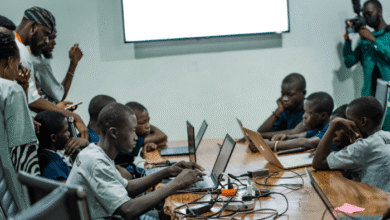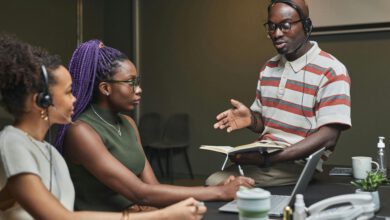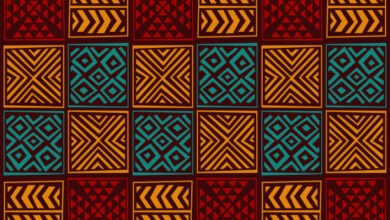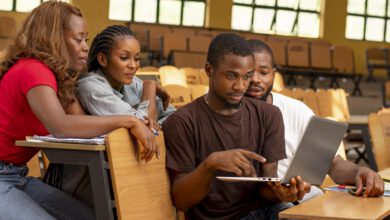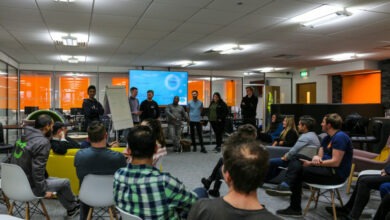Coding Clubs in Secondary Schools
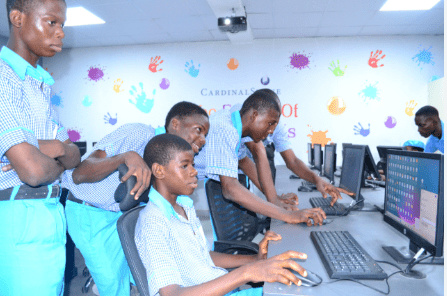
Before Corper Simeon stepped into the classroom at Government Technical College in Osun State, the student had no idea what “coding” meant. Computers? Yes, but only for typing and documentation.
He founded the school’s first coding club with just two dusty computers and a passion to make a difference. Weeks later, students were creating basic Python projects such as spreadsheets, guessing games, and apps that responded to input.
Emmanuel said, “I never thought someone like me could learn to code so fast”.
The History of Coding Education
Once upon a time, coding was an elite skill reserved for university labs and professional tech circles. Back then, languages like FORTRAN and ruled the scene, and only a select few had access. It wasn’t for kids. It wasn’t for classrooms.
But everything changed with the arrival of personal computers in the 1980s and ’90s. Suddenly, students were experimenting with languages like BASIC and Logo, and for the first time, programming became playful.
Fast forward to today: coding is no longer a niche. It’s a must-acquire skill and is about telling a computer what to do in a language it understands. Tools like Python and JavaScript are making coding approachable, creative, and fun.
Still, 90% of public secondary schools in Nigeria lack computers in their classrooms. Forcing millions of talented students to observe from behind. Thanks to initiatives like Eko-Konnect, which are reaching underserved communities, young girls in rural Nigeria are learning how to code, think critically, and dream beyond what tradition has told them.
Across the border in Ghana, Opoku Ware Senior High School (OWASS) just became the country’s first Smart School under the government’s new digital transformation project. It’s a glimpse into what’s possible when schools are equipped for the future.
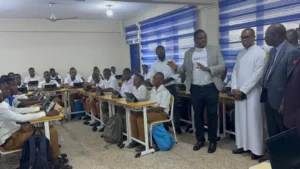
Ghana’s first Smart School under the government’s ambitious
These classrooms, once limited by chalkboards and textbooks, are becoming hubs of imagination, where students are learning to build, solve, and create.
Tech and Coding Clubs in Schools
Across Nigeria and other parts of Africa, a quiet revolution is happening not only in private schools but also in the classrooms of everyday public schools. Coding clubs are becoming a gateway for students to explore technology beyond textbooks. These clubs are often introduced as after-school programs or weekly tech sessions, where students learn the basics of programming, robotics, and digital design.
Many of these grassroots initiatives are championed by local NGOs and tech startups. For example, nonprofits like Teens Can Code or StemCafe are partnering with schools to equip students with digital skills, often at no cost to the students. These groups bring laptops, internet access, and mentors who make coding fun and accessible.
Teachers and volunteers play a key role, too. Some educators, even with limited tech backgrounds, take online courses to support their students. Others invite alumni or community tech professionals to help coach the clubs. These efforts are beginning to shift how students see learning, from memorizing facts to solving problems through code.
Importantly, these clubs are also helping break gender barriers. More girls are joining, leading, and excelling in these coding spaces. In some schools, girls are building simple websites, developing mobile games, and competing in national competitions.
Recently, Byte Busters Coding Club was launched by the Odu’a Investment Foundation across several public schools in Oyo, Osun, Ogun, and Ekiti States. This initiative has enrolled over 600 students, giving them access to digital training, mentorship from professionals, and the chance to explore programming beyond the classroom.
They’re about shifting mindsets and culture, giving students a reason to believe they can build, lead, and innovate.
Final thoughts
Coding clubs at secondary schools may appear small from the outside, with a group of teenagers crowded around a shared screen. But something amazing is happening inside.
They help students dream bigger and build smarter by giving them a laptop, a mentor, and the spark of curiosity. This is more than just a vocational institute; It’s a change.


